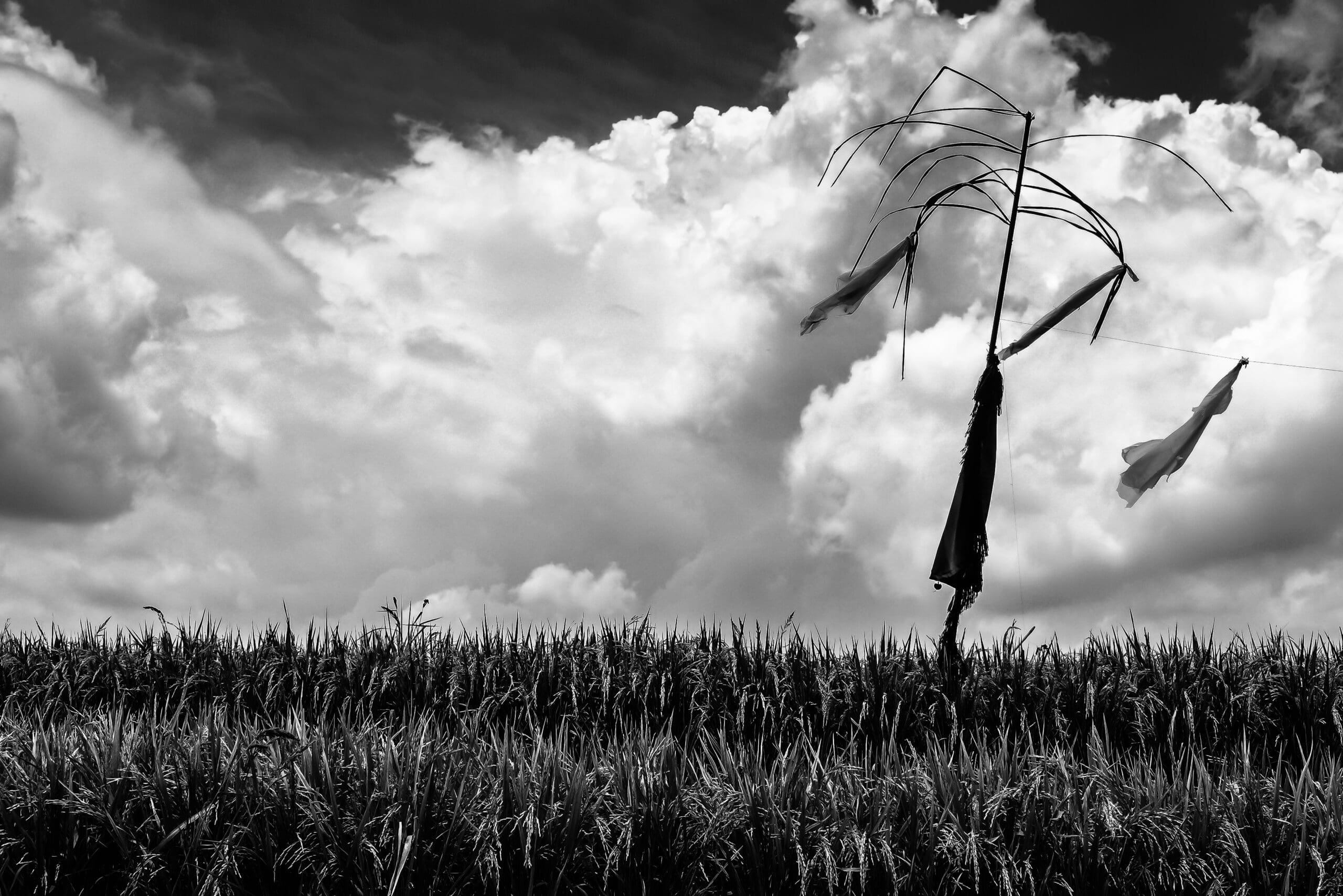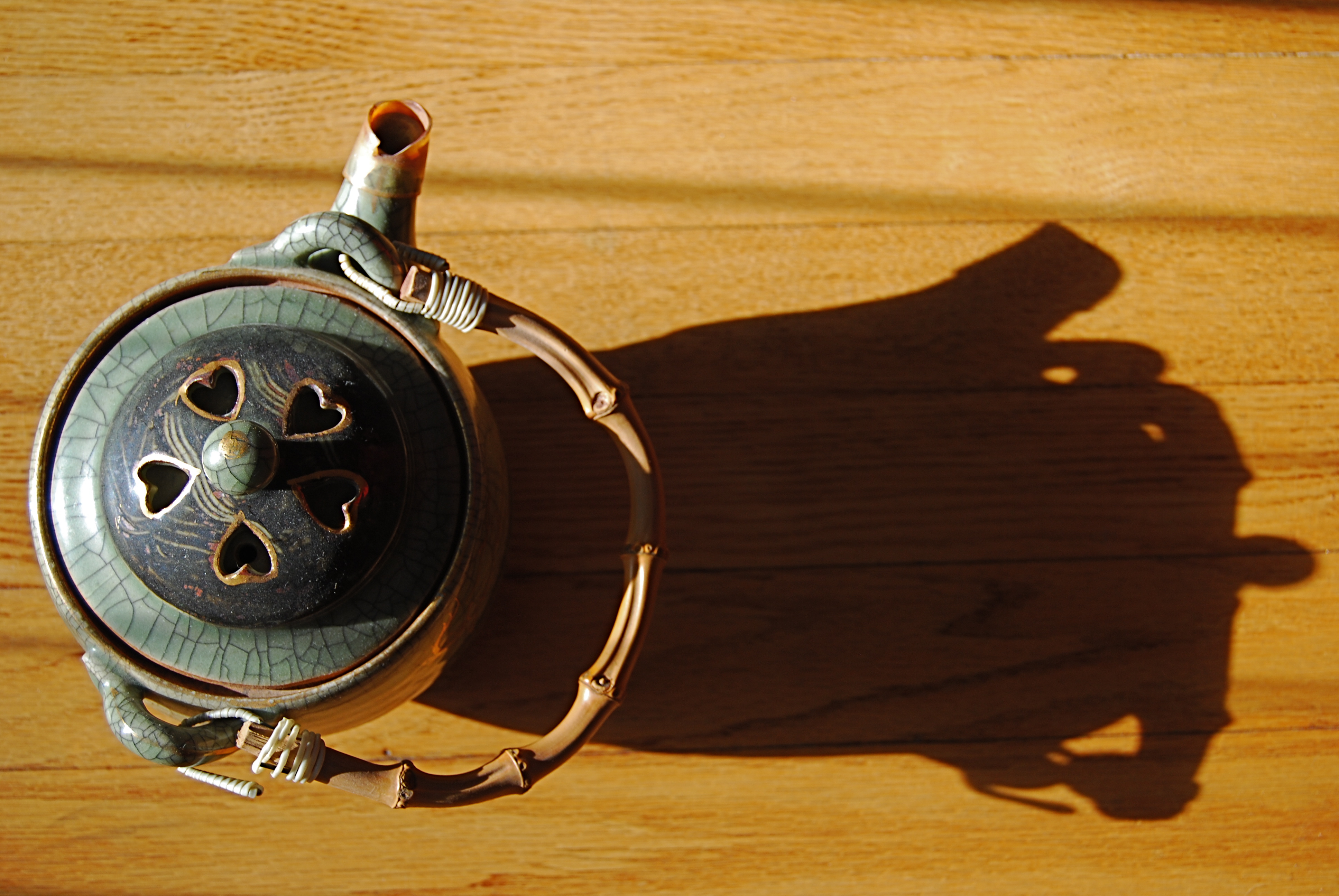I am sitting on my meditation cushion, cross-legged and with eyes closed, warmed by the afternoon sun shining through the glass patio door in front of me. The sound of a babbling brook coming from my meditation app calms me. I am getting into the zone, the state of being in which I get an inkling of somehow being connected to the universe. A place where any worries, for these moments at least, are passing and irrelevant. Suddenly, I feel a tongue on my lips, giving me a sensuous lick. I open my eyes and see my golden retriever, Lola. Her black lips are open in a wide toothy smile, her black eyes sparkle with mischief, and her golden floppy ears that turn up on the ends make her look ever so slightly like Sandra Dee, the blond sixties pop sensation. Obviously, since I have placed myself on the floor, her territory, I am at her disposal. I decide to ignore her and close my eyes again, trying to recover my oneness with the universe. Undaunted, she gives me another lick across the mouth, followed by rude forceful nudges under my arm. So, I open my eyes, give up on trying to achieve nirvana, laugh, and give her a hug. A more direct path to inner peace, actually.
So, yes, this dog, who turned 11 recently, gets her way. No strict rules in our house for her. My husband and I have retired and our kids have grown up and moved out, but her presence remains woven into the fabric of our days. And she continually reminds us to live in the moment. A typical day starts with her requesting a belly rub. She lays on her back near me, with a goofy smile on her face, her front paws dangling in front of her, T-Rex-like, and her back legs sticking up in the air. She obviously enjoys a blissful moment when I rub her belly, as she seems to melt into the carpet. She’s out of touch with the electronic distractions my husband and I experience every day, such as the incessant cycle of news and social media posts on our smartphones and vast entertainment options on our smart TV. Instead, she keenly observes and appreciates her immediate surroundings, especially when in nature. On a windy day, she lifts her nose up in the air to better sense the air flow and then gets excited, running around in circles barking and rolling around in the grass with abandon. On daily walks to a local park, my husband and Lola have a routine of gazing together into a large pond at the multi-colored fish swimming through it and watching the great blue heron that lives there take flight. She exhilarates in getting wet—whether through a bath, a pool, the ocean, a garden hose, or a downpour—and in getting dried off roughly with a towel afterward, the best game ever.
Although she is silent most of the time, it is a meaningful silence. She exudes a PRESENCE, communicating mainly with her eyes, nose, tongue, body, and tail but also periodically with barking and crying sounds. When she looks at me with soulful, serious eyes while I’m eating, eyebrows moving up and down, nose moving back and forth, she’s saying, “Dear human, would you be so kind as to share that tasty morsel with me? No? OK, then, how about if I just sit here and stare at you intently while you eat?” When she periodically comes up to me, shoves her muzzle between my thighs and keeps it there, her ears spread out, I can feel her eyelids fluttering on the inside of my legs. This is her way of saying “I just want to be real close to you for a moment, OK? And could you give me a back rub while we’re at it?” Of course, the human concept of personal space means nothing to her. When she greets me throughout the day with a big grin, an expectant expression, and a wagging tail, she’s saying, “Hey! What’s up? Isn’t life grand? Can we have some fun together RIGHT NOW?” When she looks at me with a sad, bored, and resigned expression, she is clearly disgusted with humankind and thinking, “Why doesn’t she just put away that damned phone and play with me or cuddle? My humans are too busy and distracted all the time. They don’t know how to live!” The one time I have no clue what she’s trying to communicate is when she carries her beloved teddy bear throughout the house crying loudly, forlornly, and urgently. Goldens are very emotional.
Lola radiates unconditional love indiscriminately, like a furnace emitting warmth to passersby. Until the pandemic hit us, she was used to receiving pats and belly rubs from many people we passed by on our walks, in our neighborhood or in our travels. She was also generous with her kisses to whoever might wish to partake. Now, she wistfully gazes at socially distanced strangers we encounter on walks, clearly wanting to make friends. When repair people come to our house, she wants to give them an enthusiastic welcome, including lots of kisses, and cries when we put her in a separate room to keep her out of the way. Whenever I sit down in our living room to read, she launches a love attack, jumping up to rest her front paws in my lap and give me a kiss. When my husband and I give each other a hug in our kitchen, she comes running and jumps up to be part of the embrace.
Although Lola loves humans, she has a mind of her own and is NOT in any way a people pleaser. She is a thief, sneaking behind my husband’s back to contemplate his open sock drawer and plot a heist. She is a royal in our home and will not come when I call her, unless I am preparing food. She is a misunderstood protector of her humans, who barks at dogs she sees passing by our house and, when scolded not to be so rude, walks around with her head down emitting a low “woof.” She is a connoisseur of dirt who likes to furtively bring mouthfuls of soil into the house. On a trip to the beach last year, she gulped down mouthfuls of sand before we could stop her and then spent half the night throwing up. She once licked the soot off of the inside of our fireplace before we noticed and afterward excreted black poop. She is a seeker of novel sensory experiences who, during our last holiday season, insisted on sticking her head inside a bush adorned with blue lights whenever she wanted to pee, forcing my husband to disentangle her when she was done.
Our family life can be neatly divided into the pre-Lola period and the Lola period. Before she came on the scene 11 years ago, we had sunk into a sort of funk. The zaniness and laughter that had permeated the house when the kids were young had vanished. Our oldest had started college an hour away and was enjoying his newfound freedom, although he often came home for a homemade meal. Our youngest was dealing with snarky kids and demanding teachers in middle school. My husband and I were both in stressful jobs that required continually trying to meet tight project deadlines while simultaneously motivating our staff and assuaging the egos of our bosses. The harsh sounds of bickering and nagging hung heavily in the air inside our home.
“How do I look in this outfit? I think this top is too dorky looking.”
“You are a dork so it’s perfect!”
“Well, you’re a moron.”
“Stop, you two! Be nice to each other. Please clear the table. Dad and I are tired.”
“Sorry, I can’t. I have to get back and study for a test!”
“Sorry, I have a paper due tomorrow!”
“Wait, haven’t you started it yet? No? Damn, you need to get on that!”
In short, we had somehow gotten disconnected from one another.
Our youngest had begun a campaign to convince us to get a puppy, swamping us with photos of adorable pups printed from the internet. My husband and I gave in, but he had concerns.
“When we get a dog, I’ll be the one doing all the work to take care of it. And it’s going to smell up the house!”
Lola entered our lives on a dreary winter day, when we chose her from a litter of 10 wiggling, bouncy puppies. My husband beamed from ear to ear while carrying her to the car, insisting that she was safest in his arms because the driveway was steep and icy. When we arrived at home, all four of us stood around her, mesmerized by her supreme cuteness. She looked up at us tenderly and exuberantly as if to say “So happy to be here! Are you going to be my very own humans?” Then she pooped on the carpet, the first of many accidents that, indeed, smelled up the house. And she howled through the night for the first month, deeply offended because we put her in a crate. Taking care of her was exhausting. It didn’t matter though. We were smitten. She transformed the family dynamic, providing the glue we needed to bond together again. She was all we talked about—our constant focus.
“What a clown! She raced into the house, jumped up and bit my nose!”
“Sure, I’ll take Lola for a walk. We’ll go exploring in the woods!”
“Agh! She stole my burger right out of my hands!”
“Let’s cuddle with Lola on the couch!”
“I’ve found the perfect treat to get her to learn new tricks—bacon!!!”
“Guys, help me look for Lola—she’s disappeared!!!” (After much searching and panic, we discovered that she had crawled behind the TV and fallen asleep.)
Lola also transformed my perceptions of dogs and their people. Somehow, I had not noticed the dogs in my neighborhood before but now saw them everywhere on our walks and marveled at how fortunate we humans are to have them. Humans have a tendency to live inside their heads, disconnected from one another and their surroundings, constantly judging others and their experiences. Missing the real life passing by in front of their noses because they are fixated on the past, fearful about the future, or fascinated by the images and words on their various electronic screens. Dogs use all of their senses. They excel at living in the here and now, reveling in whatever the day brings, whether it be an intriguing smell on a lamppost, newly fallen snow, or a back rub. They see us as we truly are, with all our faults, and love us wholeheartedly anyway. They are like magical creatures among us, who can show us how to live more fully, if we bother to pay attention.
In the 11 years after Lola joined our family, we took her just about everywhere we went. She acted very civilized at restaurants, handled road tripping with aplomb, and exuberantly frolicked in the waves with us on our beach excursions. On those outings, many people came up to us to tell us, with tears in their eyes, how our dog reminded them of their golden who had passed away. Each time, Lola seemed much younger than those dogs. Most recently though, while my husband was out walking Lola, he saw a family of three across the street—a mother, teenage daughter, and a pre-teen son—looking intently at her. All three got teary-eyed and the mother explained that Lola looked a lot like their 12-year old golden who had died recently. I pushed the thought out of my mind when he told me about the encounter.
Dogs age a lot faster than humans do, a sad fact for humans, and large dogs age faster than small dogs. I recently looked up Lola’s age in human years and it is 72, a few years older than me. Next year, she will be 77. Her face has turned whitish and has sprouted some warts, like an old lady in a fairy tale. But her spirit is still young. Recently, my husband and Lola were crossing a street in our neighborhood when suddenly the sun burst out, brightening what had been a gloomy day. She expressed her absolute joy at this by running in circles in the middle of the crosswalk, while the people in cars waiting to move stared at her and laughed. I’m hoping she makes it to 100.
Judy Guilliams-Tapia recently retired from a career in a Congressional agency that involved writing reports about federal programs and reviewing others’ drafts of such reports. Over the years, she has also been a frazzled Mom of two kids and assorted other creatures, an anxiety-prone perfectionist introvert, a three-time cancer survivor, a Buddhist impostor, and a long-time partner of a Chilean. She lives in a Maryland suburb of Washington, DC, and now spends much of her time contemplating life’s mysteries and writing essays. Her writing explores what it means to be a multi-faceted human in our dysfunctional yet wondrous world.
Image Credit: Julia Guilliams-Tapia





I remember when you first got Lola, when I met her at Chris’ memorial service. She was as such a beautiful presence.
Thank you for your story about Lola. I miss Dylan, my German Shepherd dog that was a part of my life for 13-1/2 years and left me at 15 years old. I too hope she is with you for many years to come. Thank you again.
Thanks, Leah, for the beautiful thoughts about Lola and Dylan. I remember when we came to visit you and Chris and a big highlight for the kids was getting to hang out with your dogs. That may have planted a little seed in Camila’s brain that sprouted into an urgent desire to get a dog! So glad we did 🙂
Judy,
Thanks so much for sharing Lola with readers. It did bring back memories of my own golden retriever, who lived till thirteen and a half. You so nicely express the joys of having a dog, of the excitement of taking her home as a puppy, and how they have a mind of their own. (My golden had a penchant for swallowing socks! He’d have the sock in his mouth, look up at us and we’d give him all this attention and he’d just swallow the thing. Our reaction entailed calling the vet in a panic and keeping socks far away from his reach). Thanks again for your lovely writing and for sharing your experiences. I miss my dog.
Best
Joe O’Day
Hi Joe,
Thanks so much for your kind thoughts about the essay! And for sharing the funny little story about your dog’s insistence on eating socks. I’m so sorry to hear about your dog’s passing and understand how much you must miss him. I can’t even think about losing Lola one day. but we’ll cross that bridge when we come to it. In the meantime, we’re giving her star status in the house. Glad she’ll always inhabit this little corner of the internet.
Best,
Judy